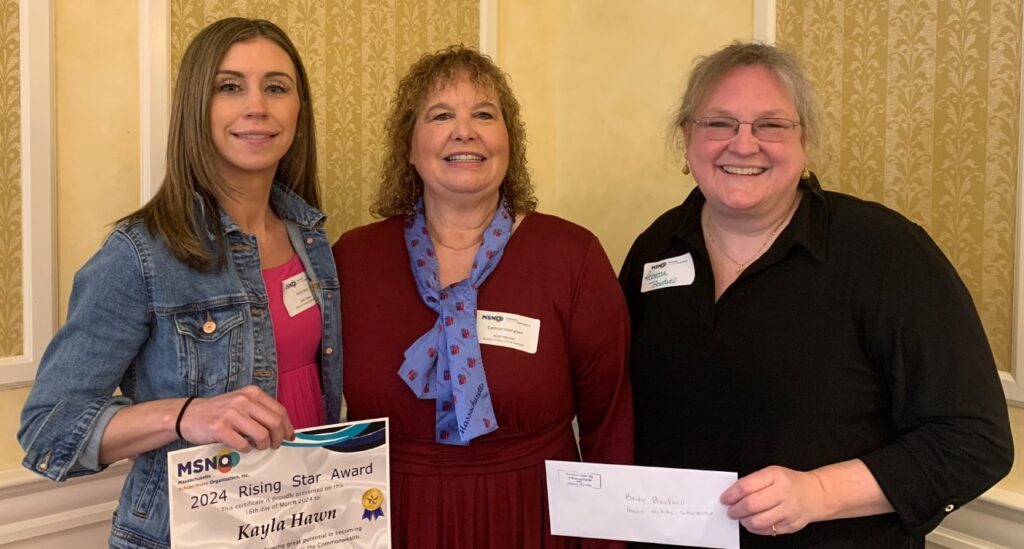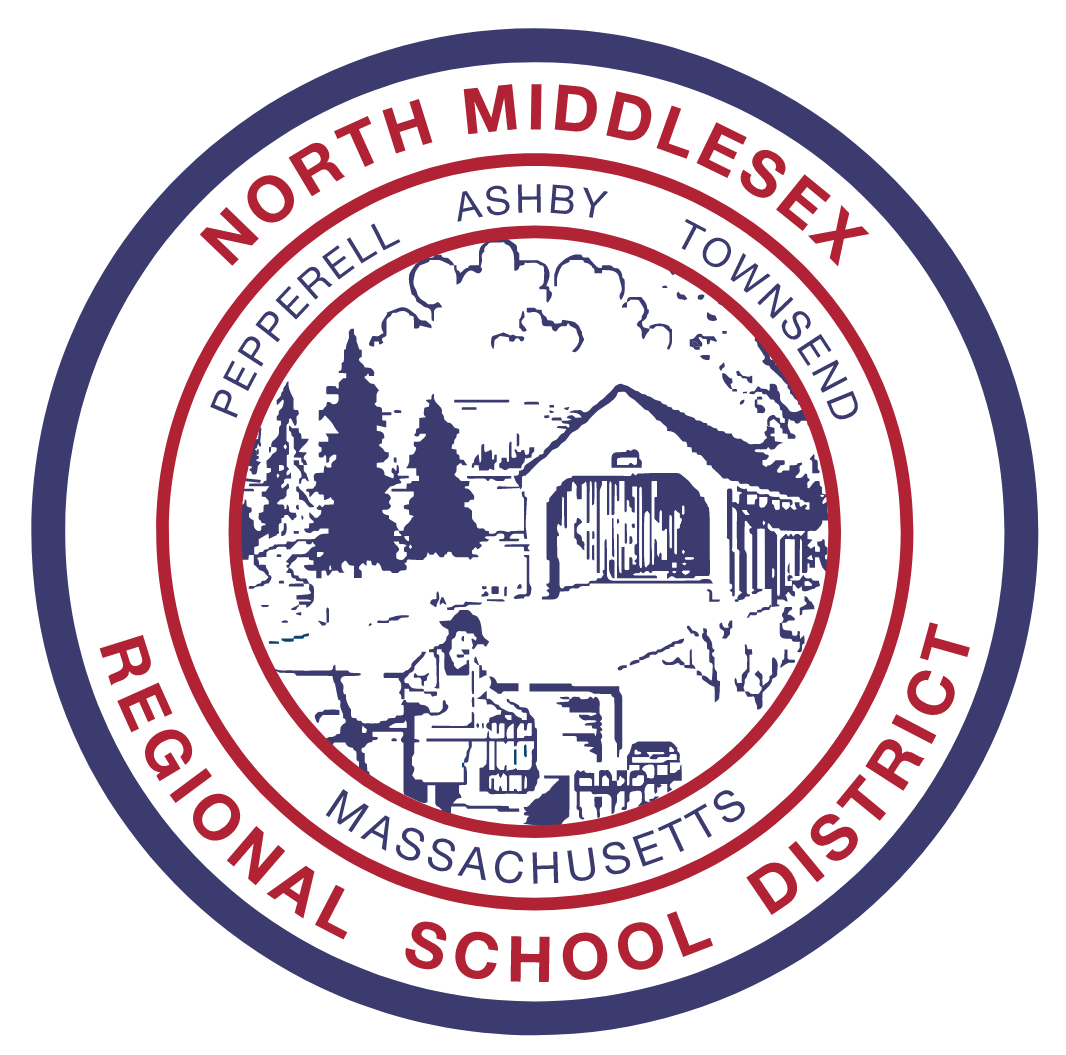
The school nurse’s office is no longer just a place to go when you get a stomachache after lunch or skin your knee at recess.
Throughout the North Middlesex Regional School District, the offices are hubs of activity where the registered nurses dispense medication, treat students and staff for injuries, help families with complex issues like homelessness and health insurance, prepare for emergencies and educate the community.
“One might think school nursing is all about Band-Aids and ice packs,’ said Rebecca Boutwell, the District Resource Nurse. “Some may think the school nurse is a place a student goes to get out of class. Many have no knowledge as to what school nursing is all about and what we do every day. School nursing is a complex, specialized area of nursing where we are faced with challenges every day. School nurses embrace those challenges before us to assist a student or staff to achieve their full potential.”
The district is fortunate to have a team of dedicated nurses, including two who were recently honored for their excellence by the Massachusetts School Nurse Association on March 16.
Boutwell received the Annie McKay Scholarship Award, named after the state’s first school nurse. Only two of these awards are given each year to school nurses who demonstrate a commitment to school nursing and are working to advance their practice and their education through a Master’s or post-graduate degree program.
Boutwell is a board-certified registered nurse with almost 30 years of experience. She has been a school nurse for 23 years, including three years as the District resource nurses. She has a Bachelor’s in nursing and is currently working on her Master’s degree. She started her career in critical care, before transitioning to a school setting. During the summer months, she works as a camp nurse manager.
Kayla Hawn, who works at the Spaulding Memorial School in Townsend, was one of just 10 school nurses in the state who received the Rising Star Award. This award is given to new school nurses with fewer than five years of experience, who have demonstrated outstanding professionalism, passion for school health, growth in practice and a significant impact on their students.
Hawn graduated with a bachelor’s in health education and then returned to school for a Bachelor’s in nursing. She has been a nurse for about seven years. Prior to working for the North Middlesex Regional School District, Hawn worked on a medical-surgical floor of a local community hospital.
(Some answers have been condensed.)
Why did you become a nurse, and specifically a school nurse?
Hawn: Since I was little, I have always wanted to help others. In my early childhood, my sister and my little cousin had been faced with some health challenges. When visiting them in the hospital, it was always the nurses that blew me away. I knew then when I grew up, I wanted to be in health care. Specific to school nursing, I love the education piece and explaining the science behind the reason. Teaching our youth is so incredibly important.
Boutwell: I have seen people on their worst day, and being able to advocate for them to promote their health is why I love nursing. We enter the doors of our school every day ready to tackle anything that comes in — injuries, illnesses and even mass casualty events. I work with the parents of children with a variety of complex medical needs to ensure their child’s ability to safely access all school activities throughout the school day. I am here to celebrate the joy of losing their first tooth and the success of a student who is now able to independently manage their chronic health condition. As a school nurse, I strive daily to provide care for my students with acceptance and equity. At the end of the day, when all the buses are gone, to know that my students were healthy, safe, and ready to learn means that I made a difference.
What do you enjoy about your job?
Hawn: I love the students and helping them feel better. I really enjoy being able to provide care to our community and feel like I have a part in a student’s school experience.
Boutwell: I enjoy educating students, staff and parents on a daily basis. I help navigate the health issues with education and individualized health care plans that support a student’s academic, social and emotional success in school. A chronic diagnosis does not define someone. I am here to help my students and their families learn that they are more than their diagnosis and we can work together as they grow into their best self.
What are some of the challenges you face as a school nurse?
Hawn: A challenge that comes with school nursing is being able to split yourself to many different areas of the school. You’re the sole medical staff in the building. Specifically, at my school, I have 400-plus students and 70 staff members. You have to be mindful of everything going on and be ready for just about anything. School nurses work very independently, which can be overwhelming some days.
Boutwell: Every day, school nurses work to bridge the gaps between home, school and community providers. We address challenges such as:
- Communication or misinformation
- Medication and treatment issues
- Transportation barriers
- Immunization hesitation
- Financial barriers
- Lack of health insurance
- Homelessness
- Cultural differences
How important is a nurse in the school community?
Hawn: A nurse is extremely important in the school community! We provide direct healthcare to students and serve as a liaison between families and healthcare providers. Growing up is hard — school nurses provide positive student responses to normal development while promoting health and safety through education. School nurses are here to advocate for students and coordinate care with school personnel.
Boutwell: I cannot stress enough the importance of a school nurse in every school… We support schools in the mission to provide a safe and supportive learning environment.
- School nurses are health care leaders within their school community.
- As a school nurse, we involve the community environment by being the school health liaison to parents and guardians. School nurses bridge a gap between the school and a student’s primary care provider and at times, we are the primary source of access to health assessments. School nurses act as a liaison for complex health issues between the primary physician, the school and home.
- We participate in staff wellness.
- School nurses address health inequities that students and communities face.
- We prepare schools for emergencies by maintaining the health of a student during a potential emergency.
- School nurses also have to deal with the mental and emotional challenges in students as well. School nurses collaborate with guidance counselors and at times are the first person to pick up a mental health concern.
Walk us through a typical day.
Hawn: Every day is very different! Typically, I see over 40 students a day reporting some symptom of a suspected illness. I manage the high needs of students every day. I have students coming in the clinic for their daily medications, recess and gym injuries, behavioral students, treating students with asthma, diabetes, epilepsy and other serious health conditions, parent/colleagues phone calls, providing staff with First Aid and CPR resources as well as Epi-Pen administration training, administrative paperwork, registration paperwork for incoming or transfer students, making sure all 400-plus students have their physicals and immunizations up to date, and making sure we follow state, federal, local, and district policies and laws that apply to educational settings. We are more than ice packs and Band-Aids.
Boutwell: Every day we come to work not knowing what is going to come through our door. Some days we are called to a classroom or bus as soon as the students arrive for an ailment or illness. We see a plethora of students throughout the day for various physiological or psychological factors. We provide medication administration and manage those students who need daily or as needed medication and treatment. We also assess, plan, implement, coordinate, monitor, and evaluate to improve outcomes, experiences, and value. Through our questions and assessments, we understand if students will be well enough to return to class, should be referred to guidance or administration, or need to be dismissed.
What was your reaction to being honored with this award?
Hawn: Total shock! I have been a school nurse for two years now. Although it’s still nursing, it’s very different coming from a hospital setting to school nursing. Having the support of my supervisor, colleagues, administration, and principal means so much to me. I could not do my job well without them. They have been beyond supportive, understanding, and inspirational.
Boutwell: I am honored to receive this award. Ann McKay was the first Massachusetts school nurse and paved the way for school nursing in Massachusetts and beyond. To receive a scholarship award founded on the life of someone who, like myself, tries to make a difference every day is humbling.
What do you enjoy doing outside of work?
Hawn: Outside of work I love spending time with my family. I have a 2-year-old son and a 4-year-old son, so I am very busy (I mean tired)! We love playing in our pool or going to the beach. Our favorite place to visit is Ogunquit, Maine. We love going up there and having lunch, walking around, and spending time there. I spent many childhood summers there.
Boutwell: I love photography. Fun fact, one of my photos made it all the way to Congress. One of my hobbies while I am at the camp is to take pictures. A former camper was presenting at Congress and used one of my landscape photos in his debrief. That was exciting to hear. Not many people can say that.
I have two senior cats, and a 1-year-old Golden Retriever that loves to be by my side all the time.
